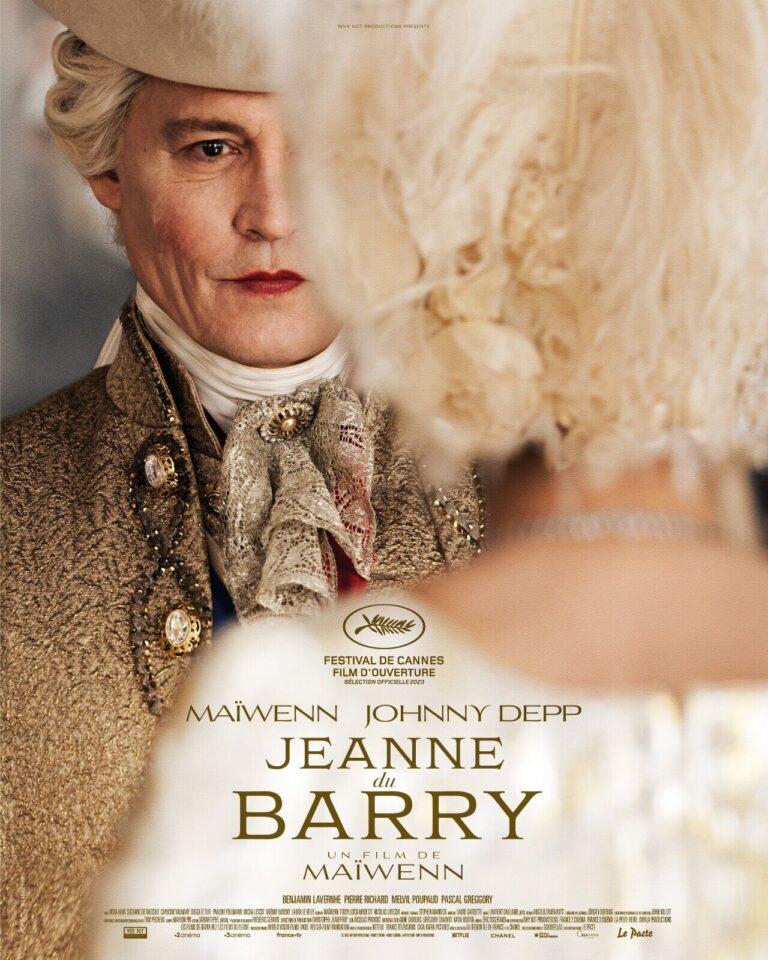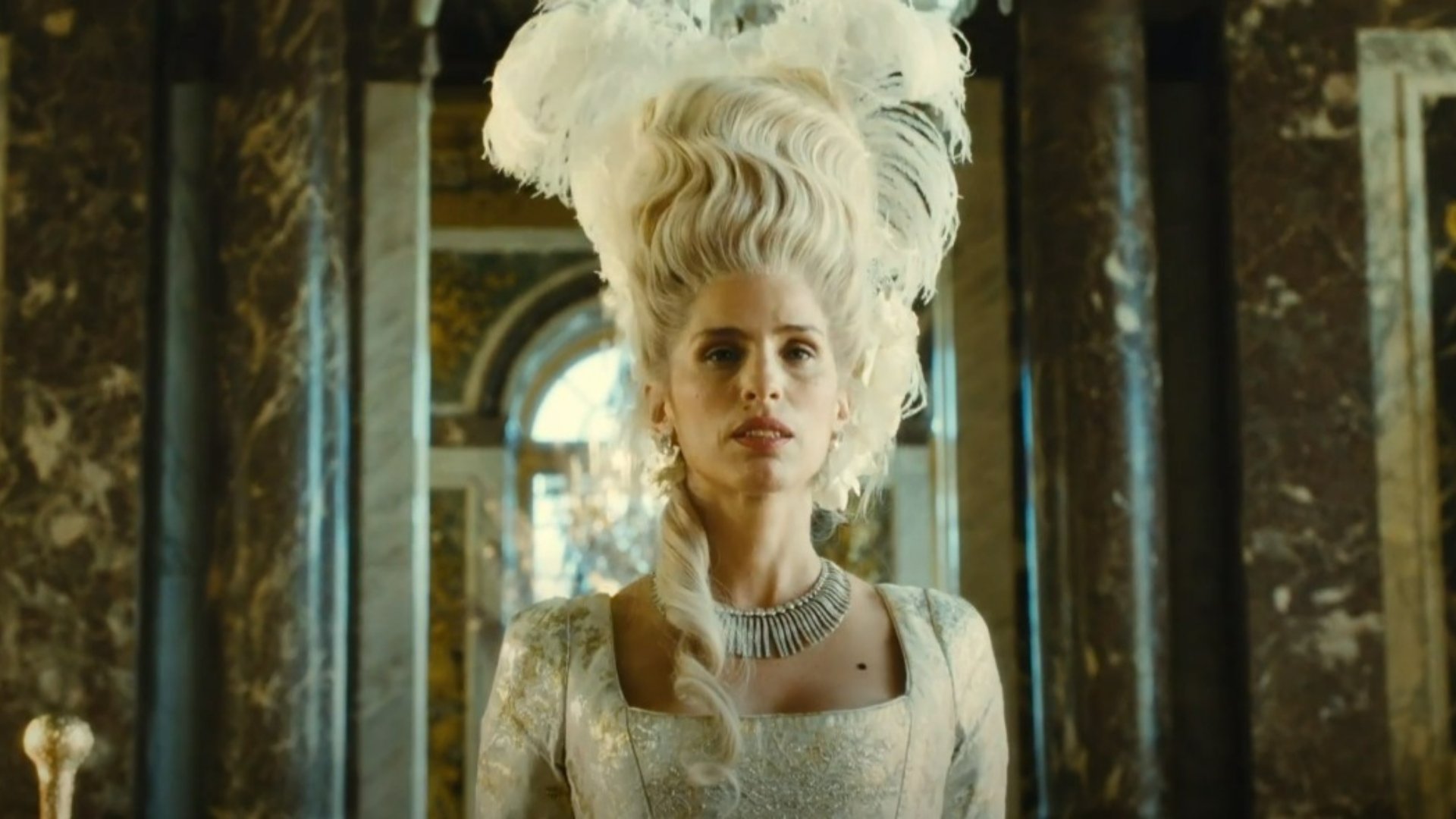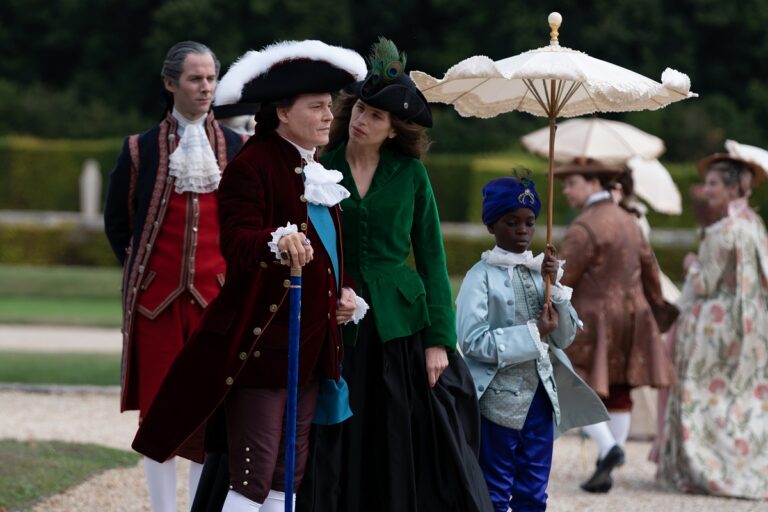
The Franco-Algerian actress and filmmaker Maïwenn, brings to the silver screen — as director and leading actress — the story of Jeanne Bécu, Comtesse du Barry, the last maîtresse-en-titre of King Louis XV of France.
Jeanne du Barry was presented Out of Competition at the 2023 Cannes Film Festival and has portentously completed the picture of a historical figure that was brought to the big screen ever since the silent era, with the 1915 movie DuBarry directed by Edoardo Bencivenga. Other glorious adaptations include Orson Welles’ 1949 Black Magic with du Barry played by Margot Grahame and the 1943 musical comedy DuBarry Was A Lady with Lucille Ball playing the unruly courtesan. In Sofia Coppola’s Marie Antoniette Madame du Barry is played by Asia Argento and there is a blatant connection with Maïwenn’s motion picture: the Dauphine of France refuses to meet or speak with Jeanne until the day she finally tells her “There are many people at Versailles today.”

The filmmaker of Mon Roi and Pardonnez-moi retraces the entire life of her heroine. Jeanne Vaubernier was the illegitimate daughter of a cook, Anne Bécu (Marianne Basler), and a friar. When Jeanne was a child her mother was hired by Monsieur Billiard-Dumonceaux (Robin Renucci), who became fond of the little girl’s education. She was thusly sent to the Convent of Saint-Aure where she nurtured her curiosity for learning, also by reading erotic tales that lead her to being sent away from the chastising religious community. Jeanne and her mother were also evicted from Monsieur Dumonceaux’s household, after being unjustly accused of theft by his wife.
The young woman soon learnt how someone with a low birth and free-spirited mind could benefit from her beauty and charm, transforming her libertine inclination into a tool of survival. Jeanne for sometime was a prostitute until Guillaume du Barry (Melvil Poupaud) and Richelieu (Pierre Richard) decided she had the potential to become the courtesan of the sovereign. Jeanne’s first encounter with Louis XV evokes the ball scene of My Fair Lady, as the mission to have his approval is accomplished. Eventually she succeeded in becoming the King’s favourite once she was wed to du Barry. However, her humble background caused her to be shunned by many, including Marie Antoinette (Pauline Pollmann) and the King’s daughters: Adélaïde (India Hair), Victoire (Suzanne de Baecque), Sophie (Laura Le Velly) and Louise (Capucine), although the latter eventually showed a more compassionate attitude.

As the King’s maîtresse déclarée, Jeanne was the centre of all eyes at court and was free to give wave to her eccentricities, such as keeping her hair down or wearing men’s clothes. Yet once the King contracted smallpox and died she had to leave Versailles and stay in a convent for a couple of years, until the Dauphin (Diego Le Fur) — who had become the new monarch — granted her permission to return to the Château de Louveciennes, the mansion that Louis XV had gifted her during the course of their affair. The irony of Jeanne’s life is that during the outburst of the French Revolution, despite her underprivileged origins, she was associated with the aristocrats she had entertained during her adult life and — just like Louis XVI and Marie Antoniette — was executed by guillotine.
The chemistry between Maïwenn, as Jeanne, and Johnny Depp, as Louis XV, is exceptional also thanks to the subtle screenplay written by the director together with Teddy Lussi-Modeste and Nicolas Livecchi. There are some instants that show a spontaneous understanding between the King and his courtesan as they enjoy mocking the pomp of the royal etiquette. The most exquisite moment of affinity is when Louis XV asks his faithful assistant Jean-Benjamin de La Borde (Benjamin Lavernhe), to have his courtesan watch his morning routine from a two-way mirror.
Maïwenn further enhances the sensitivity of this woman through her maternal instincts, that are channeled towards Adolphe (Thibault Bonenfant) — Guillaume du Barry’s son — and Zamor (Ibrahim Yaffa and Djibril Djimo), the young Bengali slave she received as a gift from the King.

The film sublimely conveys the French grandeur of the court of Versailles — with its mesmerising set designs by Angelo Zamparutti and costumes by Jürgen Doering — as well as its customs that nowadays are rightly considered heinous. Maïwenn chronicles history as it happened with audacity — avoiding the Bridgerton phenomenon of soul-washing — and portrays in its entirety the inhumane practices of 18th century France, while showing the will of a woman of that time to contrast them.
Maïwenn’s period drama is an effective reconstruction of the Reign of Louis the Beloved (le Bien-Aimé), while at the same time bringing forth some very modern themes in terms of breaking the labels imposed by society.
Final Grade: B+

